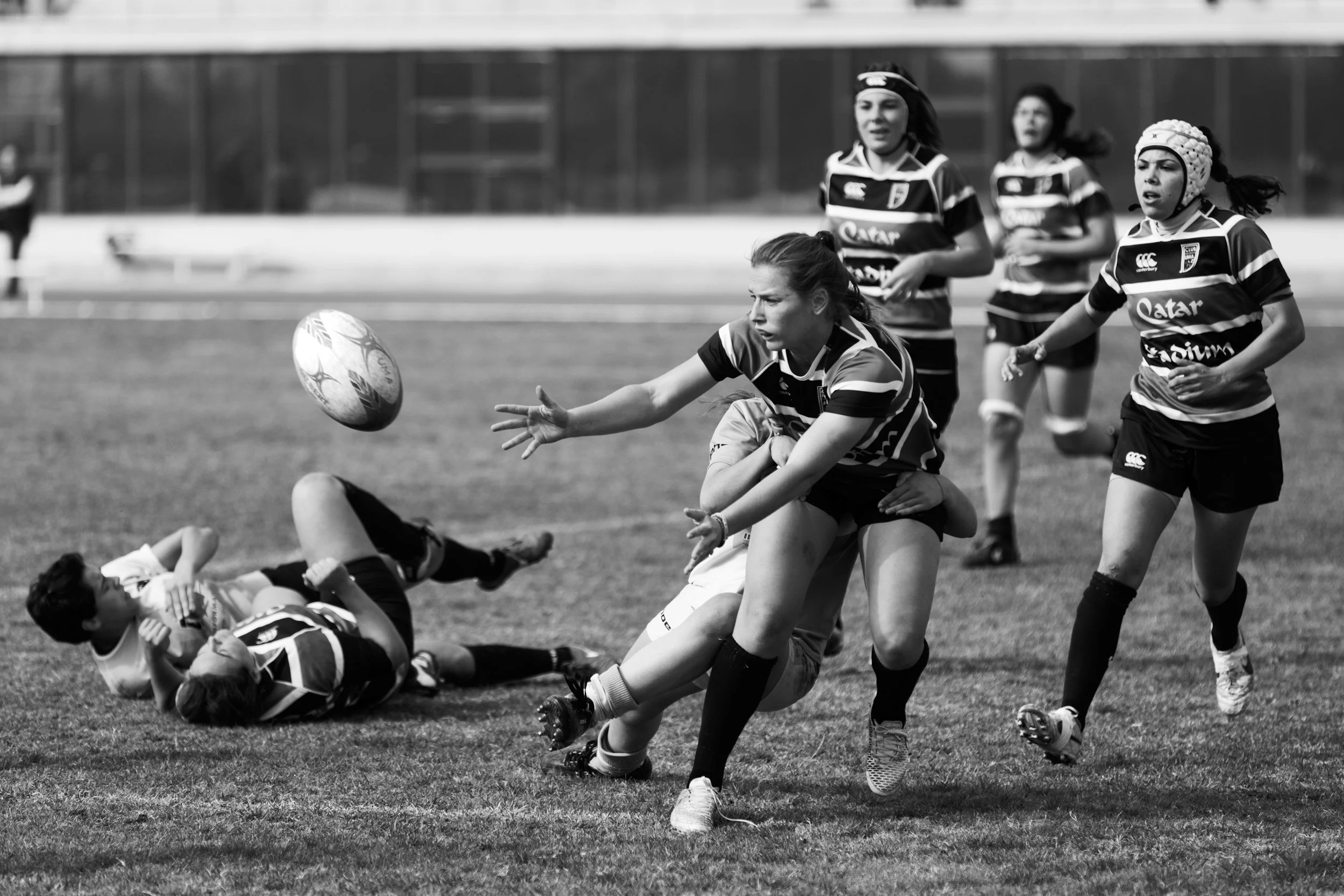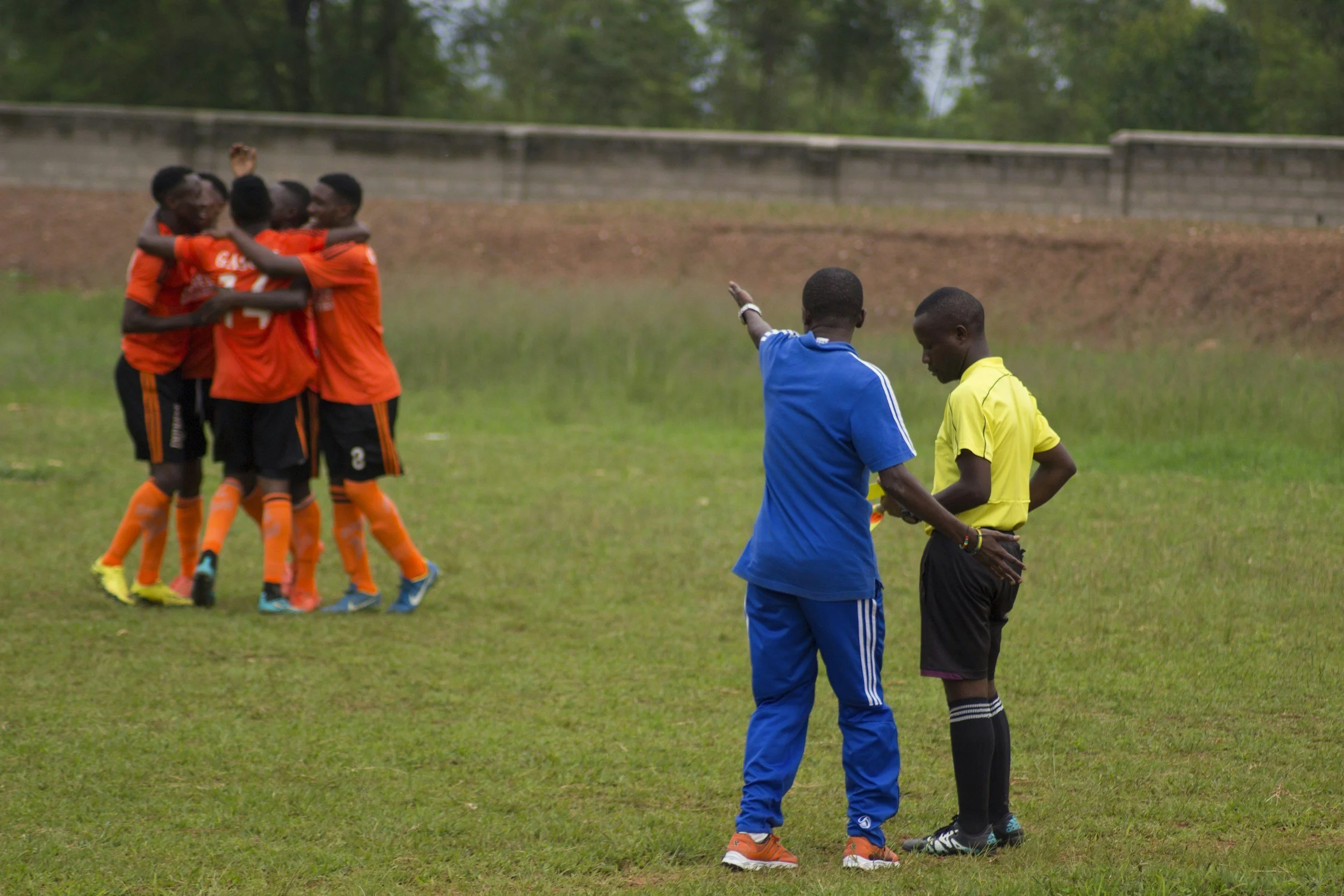
What Do Rugby and Artistic Swimming Have in Common? Part 2
Welcome to part 2 in this series about artistic swimming and rugby. Hopefully, last week encouraged everyone to learn more about both of these sports and any associated biases. Now it is time to look at these two sports through the lens of stigma. While these two sports may seem vastly different, how they are impacted by stigma brings them closer together as they are often misunderstood by the general public. These misconceptions include the nature of their athleticism, the intense physical impacts, and the gender-based stereotypes. Let’s begin our exploration on the impacts of stigma on these two sports.

What Do Rugby and Artistic Swimming Have in Common? Part 1
How often do we even think about comparing rugby and artistic swimming? Probably not too often, however, there is an important reason to explore these two sports and next week we will dive more deeply into this topic.

Building Creativity for Athletes
How often do people hear creativity, sports, and athletes in the same sentence? Chances are rare, if at all Yet, creativity can be one of the most essential topics in sports (Fardilha & Allen, 2020; Rasmussen et al., 2019). When we think about athletic creativity from a sport psychology perspective, many minds go to encouraging exploration, varied training, and open-ended problem solving, thus encouraging athletes to expand their flexibility and ability to identify novel solutions. The result is increased confidence and performance from the exposure to the above ideas, in addition to other topics such as the introduction of novel ideas, the use of visualization, and adapting creative mental exercises, like role-playing and including creative non-sport activities. Mouth full! Yep! So let’s break this down a little bit and make it fun.

Sport Psychology and Training Indoors
Chances are that many people dread the thought of training indoors because the experience is not the same. There are not the same cues that people experience when they are outdoors training such as the wind, sights, and a chance to practice cornering. That can make the experience not as enjoyable. We all lack the opportunity to practice certain skills, like cornering, but at the same time gain the opportunity to practice others, like cadence.

The Beauty of Winter
Winter mental health themes often focus around Seasonal Affective Disorder, winter blues, Depressive symptoms, isolation, anxiety, etc. All of these themes are important to discuss, as they are very real. And there is also room to spend some time inviting the beauty of nature and the winter season into the discussion remembering that winter is one of the seasons of the Earth and has its lessons for us.

Welcome Autumn!
The green of summer fades into fiery reds, dazzling yellows, and soft oranges. The flowers of summer bear fruit and we begin to enjoy winter squash, apples, cranberries, and sweet potatoes. Along with the unique astronomical phenomena and the beautiful change in color palette, this time of year often elicits different themes that invite reflection.

DNFing an Event or Race
The dreaded DNF, Did Not Finish! Why is this person writing about DNFing? Because we need to talk about it so that instead of dreading the DNF we understand how to use it to our advantage.

The Complexities of Athlete Learning Part 2
Part 2! Last time, we looked at errorless learning and external and internal focus of attention. Now we will build on last week and continue with the analogy of the ice skater. Today we will dive head first into analogy learning and implicit and explicit learning techniques.

The Complexities of Athlete Learning Part 1
Three key teaching concepts, errorless learning, external focus of attention, and analogy learning, may be used to support this skilled athlete in enhancing performance and improving preparation.

Implicit versus Explicit Training
What is implicit and explicit training in the world of sports? Implicit learning is learning that happens with little to no instruction from an outside source such as a coach and is more focused on the athlete’s experience. A few good examples of this is learning to ride a bike, using an analogy to teach a skill, or allowing an athlete to learn via sensory experience versus verbal feedback. In contrast, explicit learning is where an outside source such as a coach provides an athlete with verbal instruction.

Fitts’ Law in Motion
These stages help guide how Fitts' Law informs the role of motor learning and integration.

Growth Mindset
Dweck talks about the growth mindset and the fixed mindset. As the growth mindset speaks about fostering one’s ability to persist and build a skill set versus the fixed mindset that talks about the belief in innate ability.

Getting Your Attention
Attention and concentration in sports is a hot topic, and as with other hot topics in sports, there are different theories about attention. Attention is, basically, what we are seeing or observing. There is also value in understanding theory in order to understand how it can be applied in your life. So, while it may be a bit information dense, it will be worth taking the time. Below we will explore three different theories of attentional processes.

Motivational Theories in Sports Psychology
What is motivation? Why should we care about motivation? Motivation is what drives us to accomplish our goals. Researchers are always interested in learning about different concepts, including motivation and why we want to reach our goals. Two different theories have been proposed based on some of the research coming out of the field of sports psychology. Let’s learn a little bit about two of these theories to see if they can be of benefit to you.

What if You Had___?
Today is going to look a little different. Today we are going to explore some questions in hopes of learning more about ourselves and areas that we may need to give a little tender loving care.